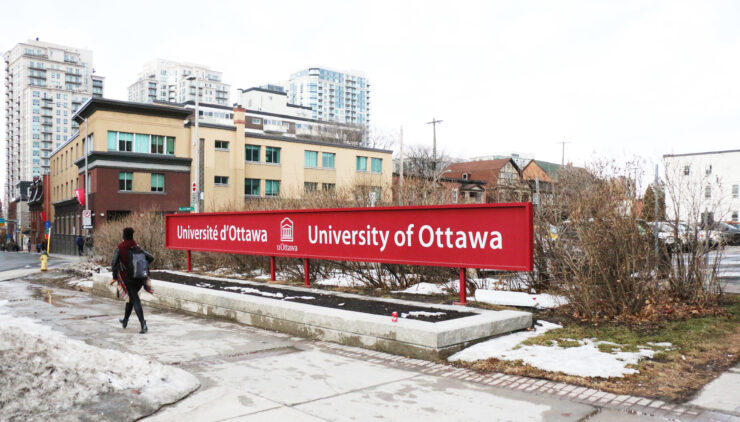Students, First Nations groups stand in solidarity with tribes affected by pipeline
On Sept. 14, members of the Ottawa community gathered outside the U.S. Embassy on Sussex Drive to protest the North Dakota Pipeline in solidarity with Indigenous communities south of the border.
Over 100 people attended the protest, some of whom held signs which said, “Stand with Standing Rock,” “Pipelines break,” and “Save our water.”
The Dakota Access Pipeline Project is a proposed 1,172 mile pipeline that will span from North Dakota to Illinois.
The goal of this project is to transport domestically produced crude oil to refining factories at a greater speed and efficiency. Approximately 470,000 barrels of oil will go through the pipeline to multiple markets in the Midwest Coast, East Coast, and the Gulf Coast, along with major oil refineries in Texas.
On June 26, the Standing Rock Sioux Tribe learned that the pipeline would run half a mile outside of their reservation as well as go over Lake Oahe and the Missouri River, damaging the reserve’s drinking water supply.
The pipeline would also disturb ancient burial ground and ancestral sacred lands of Indigenous communities. This led to protests in the United States, specifically since these plans were developed without consultation with the local native tribes.
Many First Nations groups were present at the Ottawa protest, including Claudette Commanda, daughter of Aboriginal elder Grandfather William Commanda. She shared her thoughts on the pipeline, commenting on its exploitation of Indigenous communities and the necessity of these communities to stand together.
Brock Lewis from the Wikwemikong First Nations performed a drum song that outlined the importance of protecting the land, with many people joining him in song later on.
Alisha Solomon, a Cree high school student from Fort Albany First Nation reserve, spoke to the Fulcrum about the importance of protesting the pipeline.
“The North Dakota oil company is exploiting our beliefs that water is scared,” said Solomon.
“In order to protect our water we have to gather, share thoughts, and pray. It is important to also keep these protests peaceful and nonviolent.”
Solomon went on to highlight the importance of standing together as a community to support one another in times of injustice and exploitation.
Justin Fisch, an environmental law professor at the U of O, shared his own thoughts about the pipeline project with the Fulcrum.
“The Dakota Access Pipeline is an important example of the competing interests in the management of natural resources and the fear that any mismanagement, or simply a small mistake, could have devastating effects on the natural environment it traverses.”
Fisch went on to say that “Despite the legal and administrative consultation instruments developed in the 1970s and refined to this day, there still exists significant pushback against evolving new non-renewable energy projects and their linked infrastructure.”
Fisch believes that the debate over pipelines will continue “until our country and continent make significant investments in clean energy technology and efficiency measures to satiate our demand for power.”







